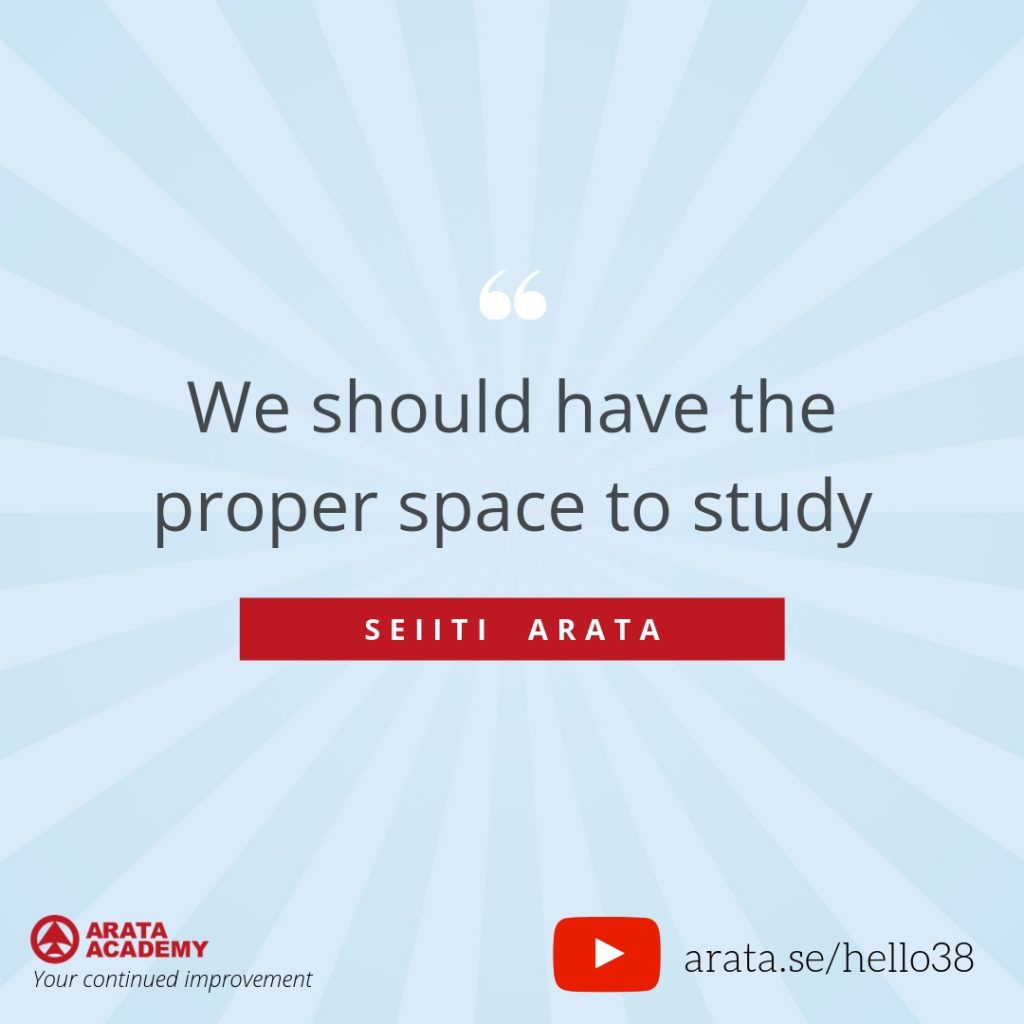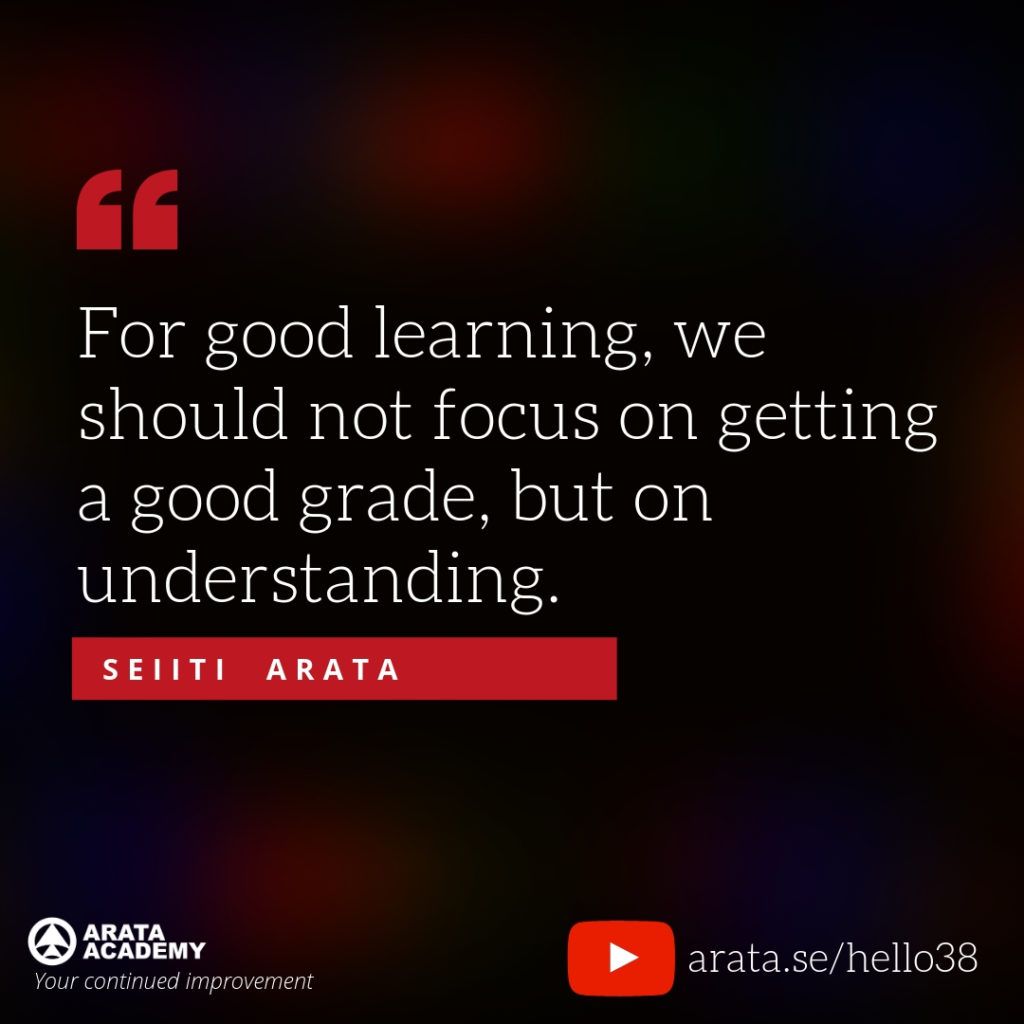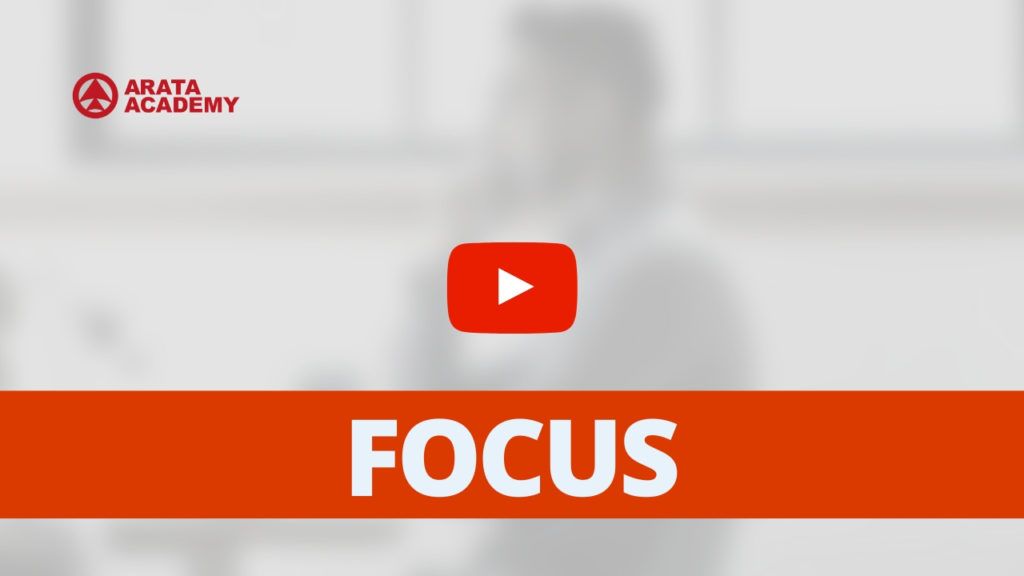Hello! Seiiti Arata. If you are studying and need to increase your concentration, here are four tips. (The third tip is the most difficult to put into practice, but it is the one that will bring you the best results.)
1. Find the right environment to study.
Despite being an obvious idea, many people do not do anything to create an environment that is conducive to study.
Imagine that I want to fly a kite. I need a wide field, and I need wind. Or if I want to go fishing, I need to go where there water and where there are fish. Isn’t it obvious?
And now, how come there are people who totally ignore the importance of the learning environment? No wonder they complain that they can not concentrate!

If the environment is not appropriate, if every five minutes someone comes and interrupts, if the phone is full of beeping notifications, it is inevitable that you will have a hard time concentrating.
So do yourself a favour now. Pause the video. Look at the environment you are using to study, and write on paper at least three improvements you will make to be able to concentrate better.
You may have to talk to people who are nearby, change your computer’s notification settings , change the lamp, buy a ventilator if the room is too hot… you get it. And you’re the best person to identify what to change.
Ready? If you want to, you can share here in the comments the changes you made in your environment and the difference they have made. Just by changing the environment a little bit, you will already see a huge gain in your performance.
2. Respect your study schedule.
If the study is important, then the time has to be respected. To think “I’m going to study whenever I have time” is disrespectful, because it means we are giving low priority to the study.
Therefore, to improve concentration, we will elevate the activity of studying to a level of greater importance.
If our study has a high level of importance, then we will be able to define clearly the starting time of the study session.
If you find it difficult to reserve time in your schedule to study, it is an indicator that other activities are more important for you than studying, and therefore it will be really hard to concentrate.
When assembling your schedule, do not forget also to leave some windows of rest when you will not study. And it is during these periods that you take care of other activities. See how we are reversing the priorities? First you study, and then do the rest when you have time.

And here comes an appeal to the younger folks who do not yet have children, employment, bills to pay or a sick family member to take care of. If you do not have that kind of responsibility, and you are not yet focused on your studies, you are sitting on top of a treasure.
It is during this time that conditions are favourable to study because you have fewer responsibilities. So enjoy as much as you can, because this is a short, precious phase!
3. Use your brain actively.
Remember when I told you the third tip is the most difficult to put into practice? Here it goes: always keep your brain active when you study. Do not run on autopilot.
Perform active reading. Ask yourself why things are the way they are. Try to understand the reason behind things. Get deeper, don’t stay on the surface. If you can stay fully engaged, there will be no difficulty concentrating. This is the flow state in which we are immersed in the activity.
True learning is not studying to pass the exams. The aim of study is to understand.
Unfortunately many students open books only because of the obligation to get the minimum grade to pass. Their goal is to score the answers of the exercises. Of course I want to get the answers right, but I need to know why this answer is right and why the other alternatives are wrong.
In the classroom, I want to take good notes. Active note-taking is when I understand what the teacher said, I compare this idea with my collection of references that I already know in my long-term memory, and then I write my notes using my own words.
Beware of the passive mentality during study. Passive mode is repeating like a parrot, just replicating exactly the same words of the teacher without knowing what they mean. You are then in fully automatic mode.
In short, I’m forcing my brain to process as much information as possible, much of which I am encountering for the first time but also the whole collection that I had stored. This whole process sets the information in my mind more efficiently.
4. Sleep well and rest well.
Don’t study all night long without sleep or disrespect your limits. Sleeping well is vital. The good study is long-term as we break a big goal into small pieces and move forward with consistency.
As a bonus tip, check out our FOCUS course—I’ll give the link to you here: https://arata.se/focuscourse.
Concentration is essential for the study session. Without concentration I’m wasting my time, looking several times at the same paragraph in the book and not absorbing anything: that would be a waste of time, it does not makes sense.
If I am dedicating time to study, I want to make the best of it. I want to have focus.

